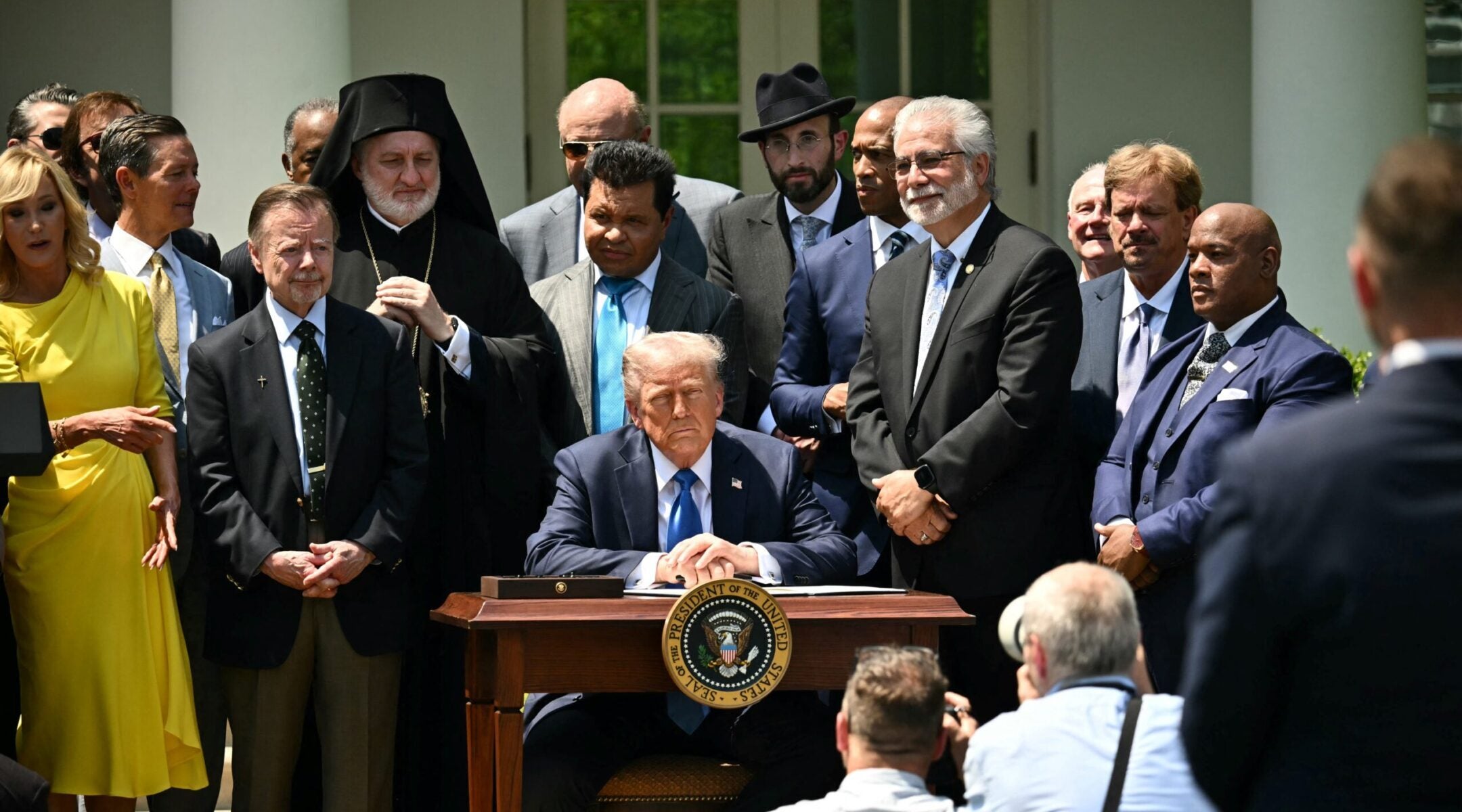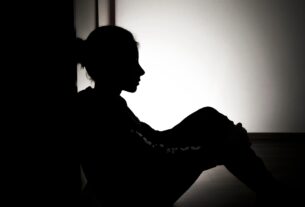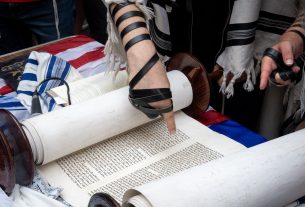Four Orthodox rabbis are among the 26 people named by President Donald Trump to advise his newly formed Religious Liberty Commission.
Two other Jewish activists at right-wing advocacy groups are also joining the commission, which Trump announced earlier this month.
Critics of the commission have charged that it caters to the concerns of evangelical Christians and reflects a broad effort by the Trump administration to erode the separation of church and state. Trump has expressed skepticism about the very principle, including at the White House Rose Garden event on the National Day of Prayer where he announced the commission.
“Separation? Is that a good thing or a bad thing? I’m not sure,” he said, adding, “We’re bringing religion back to our country. It’s a big deal.”
At the time, Trump appointed several people to the commission, including a host of Christian leaders and influencers as well as former Miss USA runner-up and television personality Dr. Phil.
The appointees also included one Jewish leader, Rabbi Meir Soloveichik, a senior scholar at the Tikvah Fund, a politically conservative Jewish think tank, and the rabbi of Congregation Shearith Israel, an Orthodox synagogue that is the oldest Jewish congregation in the United States.
On Thursday, Trump announced three advisory committees to aid the work of the commission. Their members include four other rabbis and two Jewish leaders.
All of the rabbis are affiliated with Orthodoxy, which comprises 8% of American Jewry but constitutes a significant portion of Trump’s Jewish support. While the vast majority of American Jews disapprove of the job Trump is doing as president, Orthodox Jews have shown strong support for him: More than 71% approve of the job he is doing while fewer than 20% disapprove, according to a recent poll.
Here are the Jews named to the Religious Liberty Commission advisory committees:
- Jason Bedrick was the first Orthodox Jew elected to the New Hampshire legislature. Now a research fellow at the Center for Education Policy at the Heritage Foundation, he describes himself as a “stiff-necked Jew” on his X account, where he often advocates for school choice.
- Rabbi Mark Gottlieb is Tikvah’s chief education officer and the founding dean of the Tikvah Scholars Program. He was also one of the signatories of the Phoenix Declaration, which calls for parental choice in American education and to teach students about “America’s founding principles and roots in the broader Western and Judeo-Christian traditions.” It was produced by the Heritage Foundation, a conservative think tank.
- Alyza Lewin is president of the Louis D. Brandeis Center for Human Rights Under Law, a pro-Israel legal group active in campus lawsuits, and a co-founder and partner in Lewin & Lewin, a law firm. In 2014, Lewin argued before the Supreme Court for the recognition of Israel as a place of birth on U.S. passports, which the Trump administration approved in 2020.
- Rabbi Yaakov Menken is the executive vice president of the Coalition for Jewish Values, a hard-line conservative group that claims to represent more than 2,500 “traditional Orthodox rabbis” and opposes progressive values that he says constitute “wokeism.” Menken said in a statement that his group had been “a vocal advocate for religious freedom protections for Christian and other groups, understanding that any threat to their religious liberty could easily be used against our freedoms as well.”
- Rabbi Eitan Webb is the founder and director of the Chabad at Princeton and the Jewish chaplain at Princeton University since 2007. In 2017, Webb stepped in to host a speech by a right-wing Israeli lawmaker after Princeton Hillel cancelled her appearance due to allegations that she had made racist statements.
- Rabbi Chaim Dovid Zwiebel is the executive vice president of Agudath Israel of America, a haredi Orthodox umbrella group. In April, Zweibel went to Washington to lobby members of the Senate and the House to support a tax credit bill to help parents pay to send their children to private schools. A version of that bill is included in Congress’ proposed budget legislation.
“At a time when many segments of American society have been moving away from religious practice and identity, it is especially important that we stand vigilant in protecting our first freedom – religious liberty,” Zweibel said in a statement.
Trump made appointments the same day that the U.S. Commission on International Religious Freedom announced the departure of a prominent Jewish member, before the commission is set to turn over in May 2026. Susie Gelman is a longtime Jewish philanthropist and pro-Israel activist who until recently chaired the board of the Israel Policy Forum, a centrist advocacy group lobbying for a two-state solution. In 2016, Gelman expressed concern over the incoming Trump administration’s stances on Israel.
“The work of the Commission greatly benefitted from her invaluable contributions and insight from her years of experience working with religious communities, in particular the Jewish community,” the commission’s chair, Stephen Schneck, said in a statement.
There remain two Jews among the seven remaining commissioners, who are charged with monitoring religious freedom abroad. They are Soloveichik and Ariela Dubler, an attorney and the head of school at the Abraham Joshua Heschel School in New York City.




